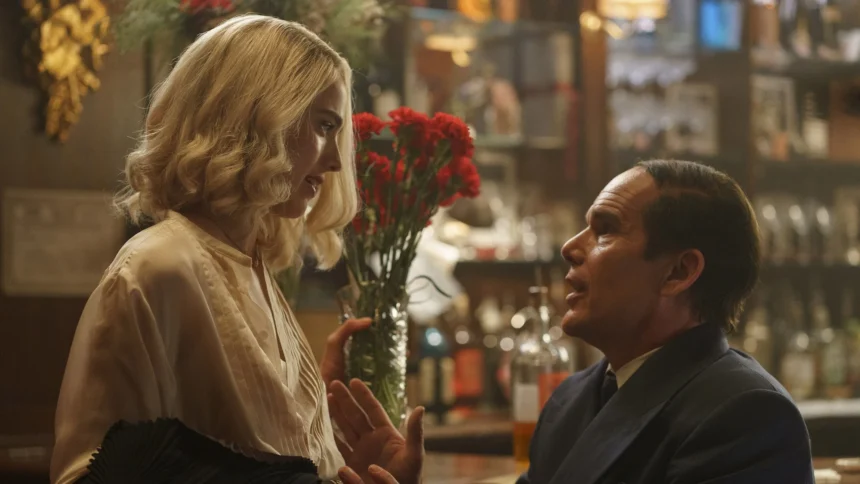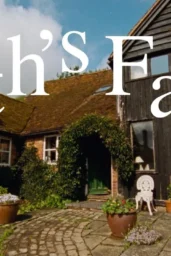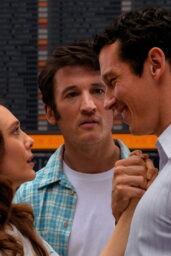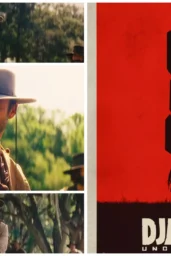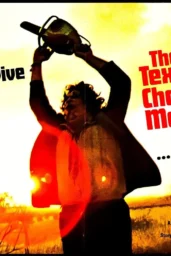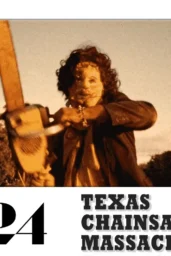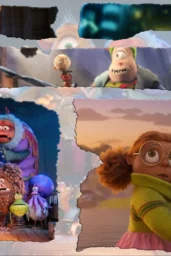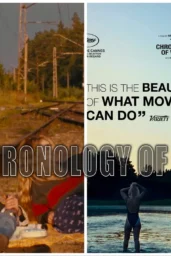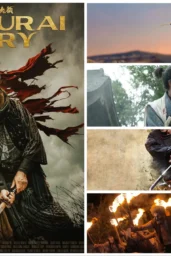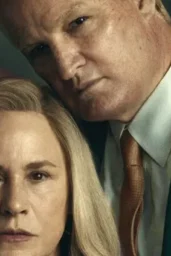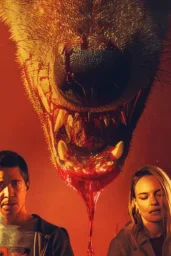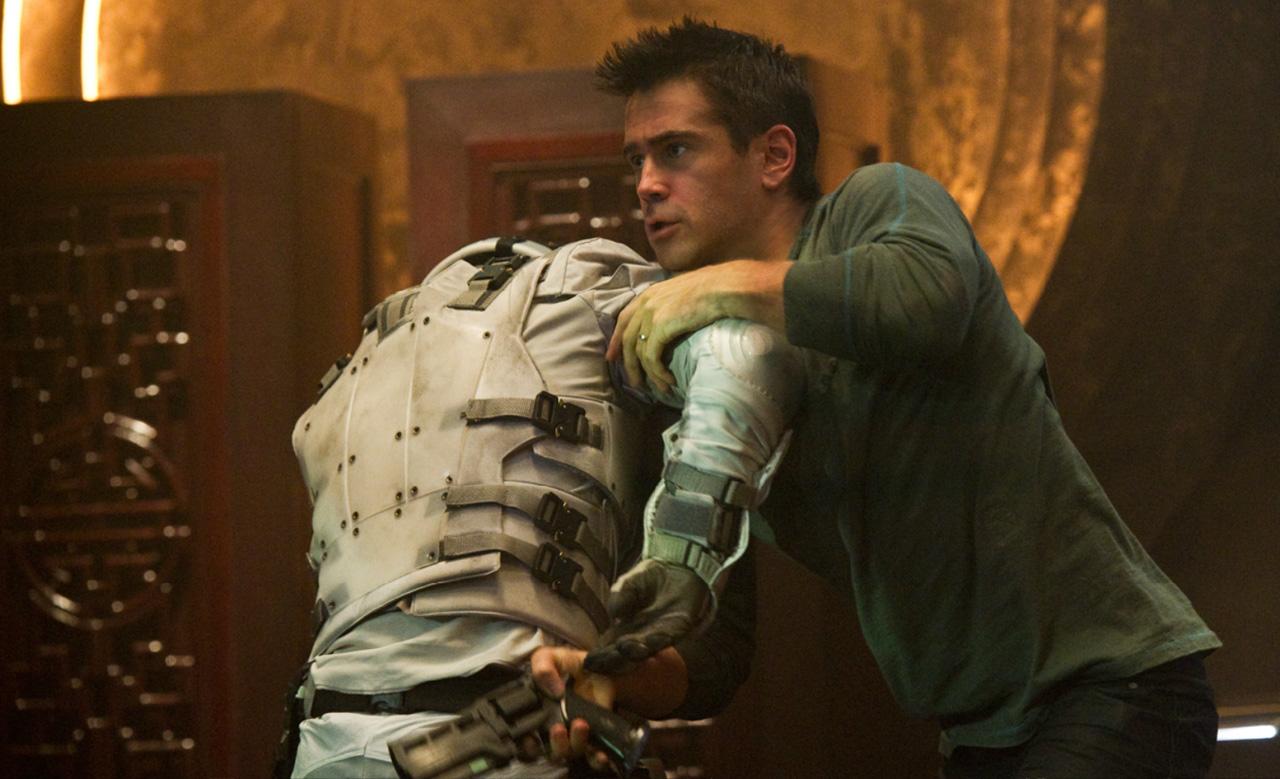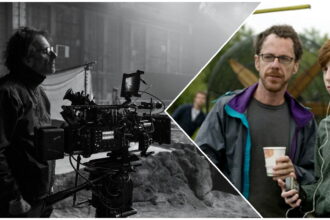Blue Moon isn't your average awards-season contender. It's a dimly lit, talk-heavy chamber piece where the only real explosion is the slow implosion of a man's soul. And that's precisely the pitch.
Sony Pictures Classics has released the official trailer for Blue Moon, Richard Linklater's latest time-anchored experiment, premiering at the 2025 Berlin International Film Festival and opening in select U.S. theaters on October 17, 2025. The film stars Ethan Hawke as lyricist Lorenz Hart—better known as the “sad half” of Rodgers & Hart—caught in an existential nosedive during a single night at Sardi's bar while his former partner Richard Rodgers (played by Andrew Scott) celebrates Oklahoma!'s raucous Broadway debut just blocks away.
Linklater, as always, plays the long game with intimacy. He's less interested in grand drama than the spaces between glasses clinking and hearts breaking. If Before Sunset was about the possibility of a second chance, Blue Moon is about the brutal moment you realize there won't be one.
The trailer wastes no time setting the tone: smoky interiors, big-band ambiance, and a parade of characters who drift through like ghosts of potential. Hawke's Hart is equal parts charming and collapsed—his career, his confidence, and his sense of self all circling the drain. Margaret Qualley plays Elizabeth Weiland, a beacon of ephemeral warmth, while Bobby Cannavale anchors the setting as Eddie the bartender—half confidant, half executioner.
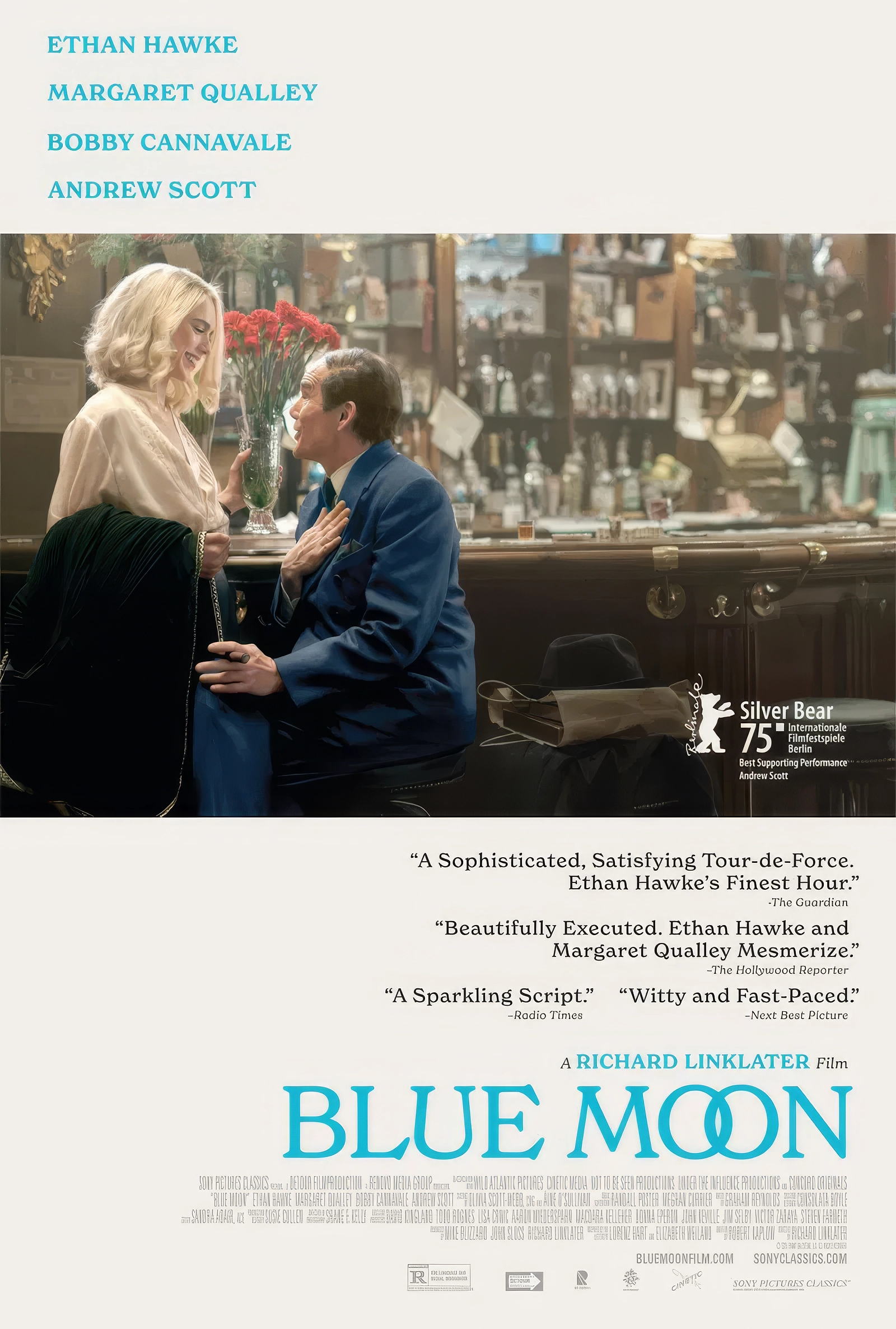
Shot with a restrained elegance, the trailer leans heavily on muted color palettes, sepia flourishes, and static framing—visual cues that quietly echo Hart's creative stasis. The 100-minute real-time structure promises no artificial highs or third-act fireworks. Just a long night, one that reveals everything through conversation, memory, and the slow bleeding out of ego.
But what makes Blue Moon fascinating isn't just the premise. It's the unmistakable aura of decline—personal, artistic, romantic. Linklater and screenwriter Robert Kaplow (best known for Me and Orson Welles) don't offer Hart redemption. Instead, they render him in all his brilliance and brittleness. A man still adored, still admired, but internally—irreversibly—lost.
The poster, too, nods to this duality. A floral smile from Qualley's Elizabeth, Hawke's hand pressed to his chest, the entire bar buzzing behind them—and yet, everything feels just a bit too polished, too ghostly. Like a memory Hart himself might embellish.
Andrew Scott won the Silver Bear for Best Supporting Performance at Berlinale, a nod not just to his skill but the ensemble's ability to turn what could have been a one-note exercise into something alive. That said, Linklater's “talky” dramas don't play to everyone. Some will find Blue Moon slow, even indulgent. But those familiar with his real-time narratives (Tape, Before Midnight, Bernadette) will recognize the rhythm: you sink in, or you don't.
It's also worth noting that Blue Moon is just one of two Linklater projects this year—the other being Nouvelle Vague, a Jean-Luc Godard-inspired French-language piece that bowed at Cannes 2025. Between the two, Linklater seems to be meditating more on legacy than reinvention. And he's earned the right.
Whether Blue Moon becomes a breakout or a boutique footnote will depend on how much patience audiences have left for quiet introspection. But one thing's clear: this is Ethan Hawke at his most vulnerable, Margaret Qualley at her most magnetic, and Richard Linklater at his most formally daring since Boyhood.

